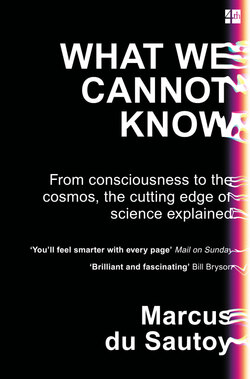Читать книгу What We Cannot Know - Marcus du Sautoy - Страница 16
AN INTERRUPTED GAME
ОглавлениеThe mathematical mastery of the dice shifted from Italy to France in the mid-seventeenth century when two big hitters, Blaise Pascal and Pierre de Fermat, started applying their minds to predicting the future of these tumbling cubes. Pascal had become interested in trying to understand the roll of the dice after meeting one of the great gamblers of the day, Chevalier de Méré. De Méré had challenged Pascal with a number of interesting scenarios. One was the problem Galileo had cracked. But the others included whether it was advisable to bet that at least one 6 will appear if a dice is thrown four times, and also the now famous problem of ‘points’.
Pascal entered into a lively correspondence with the great mathematician and lawyer Pierre de Fermat in which they tried to sort out the problems set by de Méré. With the throw of four dice, one could consider the 6 × 6 × 6 × 6 = 1296 different outcomes and count how many include a 6, but that becomes pretty cumbersome.
Instead, Pascal reasoned that there is a 5⁄6 chance that you won’t see a 6 with one throw. Since each throw is independent, that means there is a 5⁄6 × 5⁄6 × 5⁄6 × 5⁄6 = 625⁄1296 = 48.2% chance that you won’t get a 6 in four throws. Which means there is a 51.8% chance that you will see a 6. Just above an evens chance, so worth betting on.
The problem of ‘points’ was even more challenging. Suppose two players – let’s call them Fermat and Pascal – are rolling a dice. Fermat scores a point if the dice lands on 4 or higher; Pascal scores a point otherwise. Each, therefore, has a 50:50 chance of winning a point on any roll of the dice. They’ve wagered £64, which will go to the first to score 3 points. The game is interrupted, however, and can’t be continued, when Fermat is on 2 points and Pascal is on 1 point. How should they divide the £64?
Traditional attempts to solve the problem focused on what had happened in the past. Maybe, having won twice as many rounds as Pascal, Fermat should get twice the winnings. This makes no sense if, say, Fermat had won only one round before the game was interrupted. Pascal would get nothing but still has a chance of winning. Niccolò Fontana Tartaglia, a contemporary of Cardano, believed after much thought that it had no solution: ‘The resolution of the question is judicial rather than mathematical, so that in whatever way the division is made there will be cause for litigation.’
Others weren’t so defeated. Attention turned not to the past, but to what could happen in the future. In contrast to the other problems, they are not trying to predict the roll of the dice but instead need to imagine all the different future scenarios and to divide the spoils according to which version of the future favours which player.
It is easy to get fooled here. There seem to be three scenarios. Fermat wins the next round and pockets £64. Pascal wins the next round, resulting in a final round which either Pascal wins or Fermat wins. Fermat wins in two out of these three scenarios so perhaps he should get two-thirds of the winnings. It was the trap that de Méré fell into. Pascal argues that this isn’t correct. ‘The Chevalier de Méré is very talented but he is not a mathematician; this is, as you know, a great fault.’ A great fault, indeed!
Pascal, in contrast, was great on the mathematical front and argued that the spoils should be divided differently. There is a 50:50 chance that Fermat wins in one round, in which case he gets £64. But if Pascal wins the next round then they are equally likely to win the final round, so could divide the spoils £32 each. In either case Fermat is guaranteed £32. So the other £32 should be split equally, giving Fermat £48 in total.
Fermat, writing from his home near Toulouse, concurred with Pascal’s analysis: ‘You can now see that the truth is the same in Toulouse as in Paris.’
